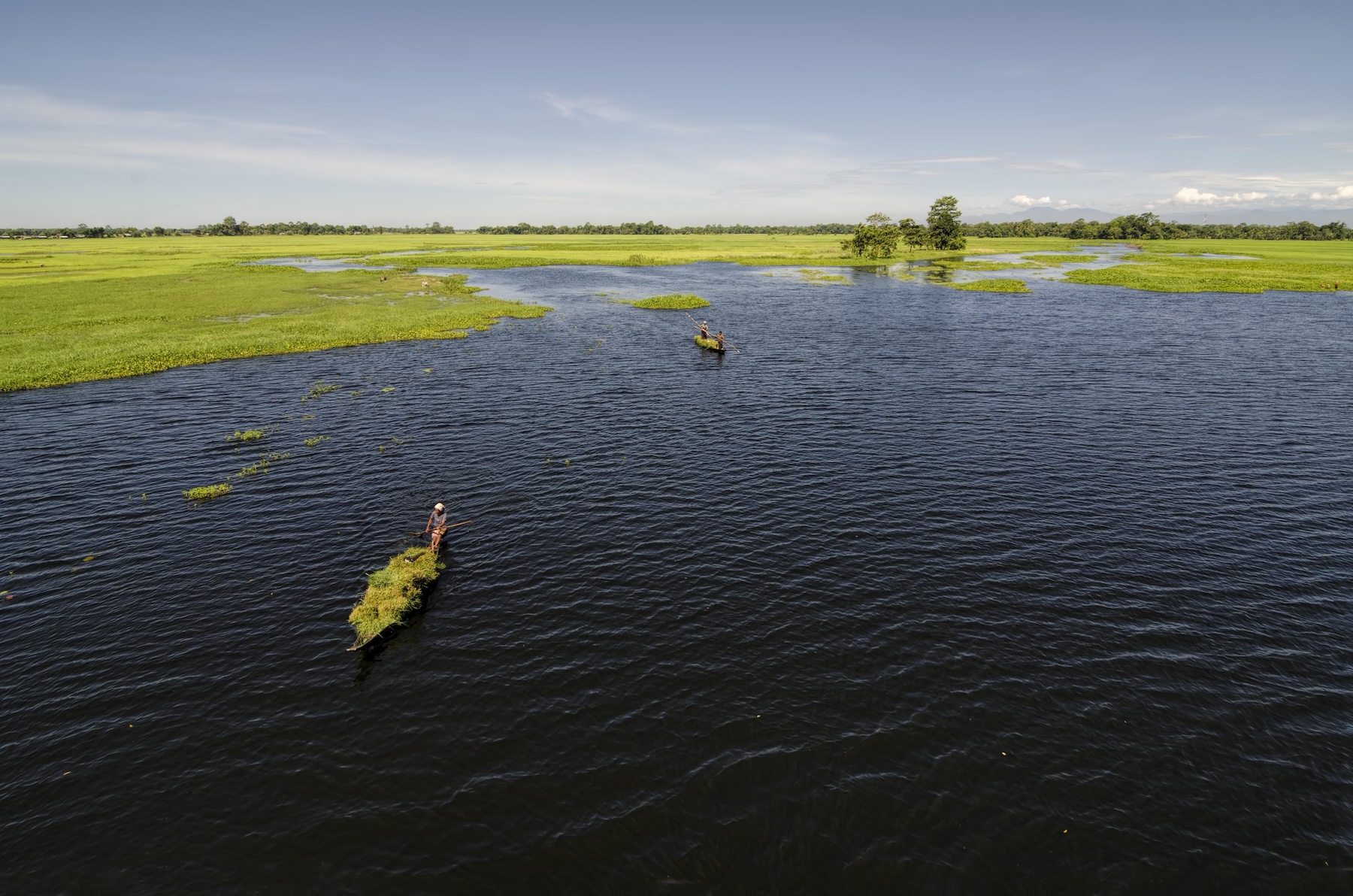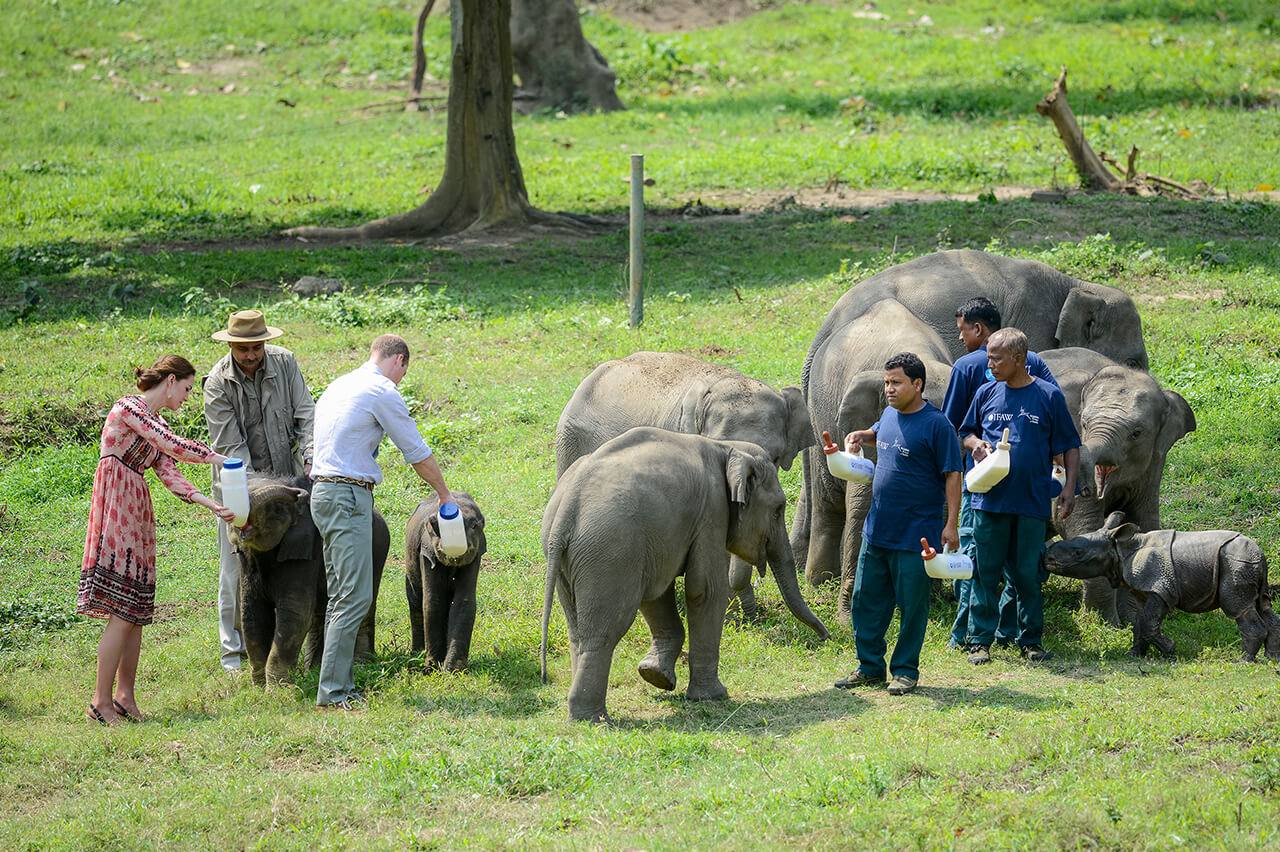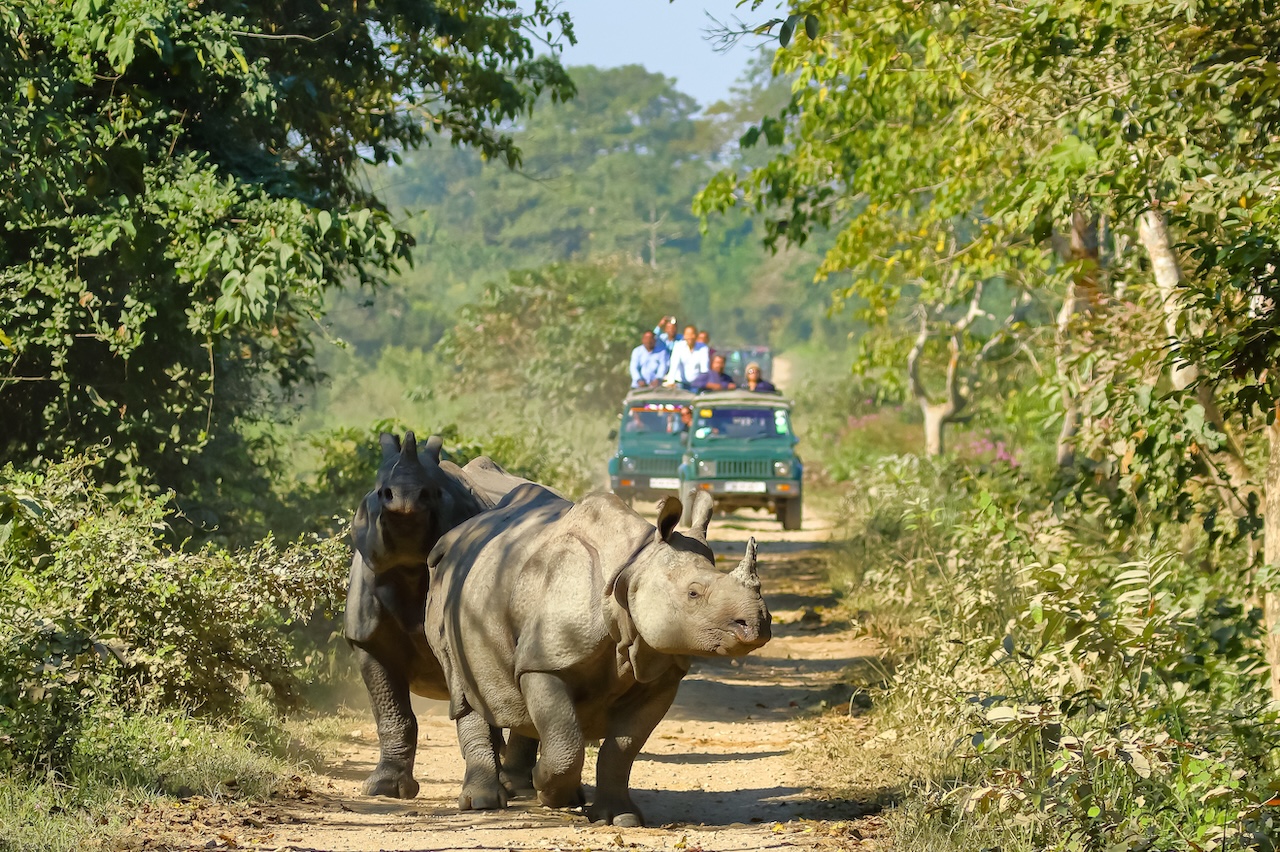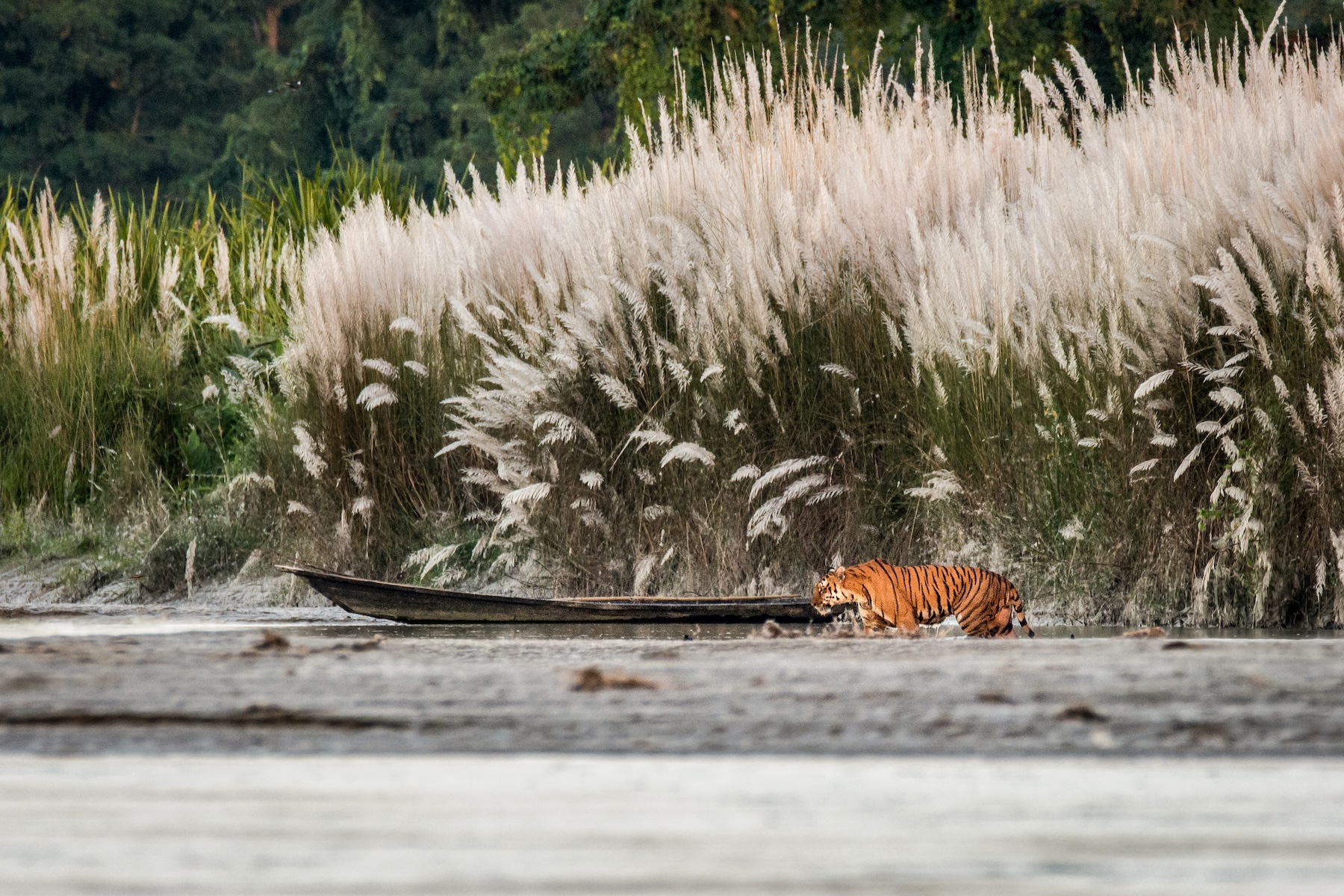Northeast India is blessed with a rich and diverse natural landscape, home to unique flora, fauna, and ecosystems. Recognizing the importance of preserving this biodiversity, several conservation initiatives have been implemented in the region. Here are some notable conservation initiatives in Northeast India:
Protected Areas and National Parks:
Northeast India boasts numerous protected areas and national parks, which serve as crucial habitats for wildlife conservation. Kaziranga National Park and Manas National Park in Assam are UNESCO World Heritage Sites and have been instrumental in conserving the endangered Indian rhinoceros and other species. Nameri National Park, Dibru-Saikhowa National Park, and Orang National Park are other notable conservation areas in the region.
Forest Conservation and Anti-Poaching Efforts:
Given the rampant illegal wildlife trade and habitat destruction, various organizations and government agencies actively engage in forest conservation and anti-poaching initiatives. Assam Forest Department's Special Rhino Protection Force, along with NGOs like Wildlife Trust of India, focuses on curbing wildlife crime, strengthening patrolling efforts, and raising awareness among local communities.

Community-Based Conservation:
Community-based conservation approaches have gained prominence in Northeast India, involving local communities in conservation efforts. The Mishing tribe in Assam, for instance, has established the Pani Dihing Bird Conservation Reserve to protect and conserve avian species. Such initiatives empower communities to take ownership of their natural resources and promote sustainable practices.
Conservation Education and Awareness:
Educating and raising awareness among local communities, schools, and the general public is crucial for fostering a conservation mindset. NGOs, government agencies, and educational institutions organize workshops, awareness campaigns, and nature camps to promote environmental consciousness and the importance of conservation.

Wildlife Rehabilitation and Rescue Centers:
The region is home to several wildlife rehabilitation and rescue centers that provide care for injured, orphaned, or confiscated animals. The Centre for Wildlife Rehabilitation and Conservation (CWRC) in Assam is one such facility dedicated to the rehabilitation and release of wildlife, including endangered species like the Hoolock gibbon and Asian elephant.
Biodiversity Research and Documentation:
Several research institutions and organizations in Northeast India contribute to the documentation and study of the region's unique biodiversity. Institutions like the Botanical Survey of India and Zoological Survey of India conduct surveys, document species, and monitor biodiversity changes. Such research is vital for understanding ecosystem dynamics and informing conservation strategies.

Eco-Tourism and Sustainable Development:
Promoting eco-tourism and sustainable development practices is another key conservation initiative in the region. By encouraging responsible tourism, local communities can benefit economically while simultaneously protecting their natural resources. Initiatives like community-based homestays and nature-based tourism create incentives for conservation and raise awareness among visitors.
These conservation initiatives in Northeast India demonstrate the collective efforts of government bodies, NGOs, local communities, and research institutions to protect the region's rich biodiversity. By combining scientific research, community involvement, sustainable practices, and policy measures, these initiatives aim to preserve the natural heritage of Northeast India for future generations.

